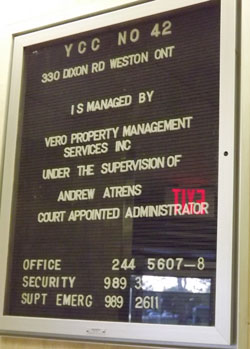—English idiom
The corporation had work orders calling for renovations with an estimated cost of $9,600,000. As of the end of 2006, only $73,000 worth of the required work was done.
The City of Toronto had issued work orders to YCC #42 covering repair of the balconies and brickwork of each building.
Dealing with the corporation's dreadful financial situation and the city work orders was the administrator's first priories.
